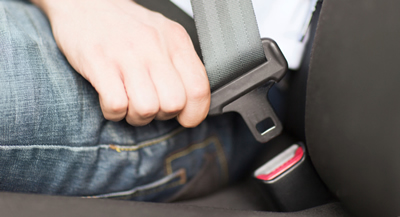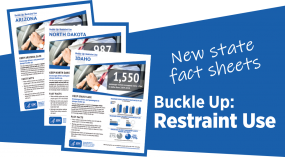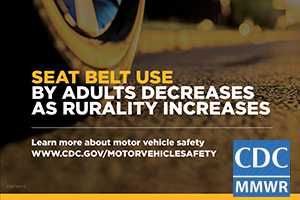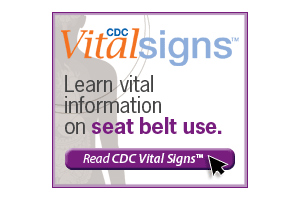Seat Belts
Motor vehicle crashes are a leading cause of death among those aged 1-54 in the U.S.
For adults and older children (who are big enough for seat belts to fit properly), seat belt use is one of the most effective ways to save lives and reduce injuries in crashes. Yet millions do not buckle up on every trip.
Working together, we can help keep people safe on the road – every day. Encourage drivers and passengers to buckle up on every trip.
Fact sheets are available for each state and the District of Columbia and include national and state data on restraint use and occupant crash deaths, as well as an overview of proven strategies for increasing the use of seat belts, car seats, and booster seats.




